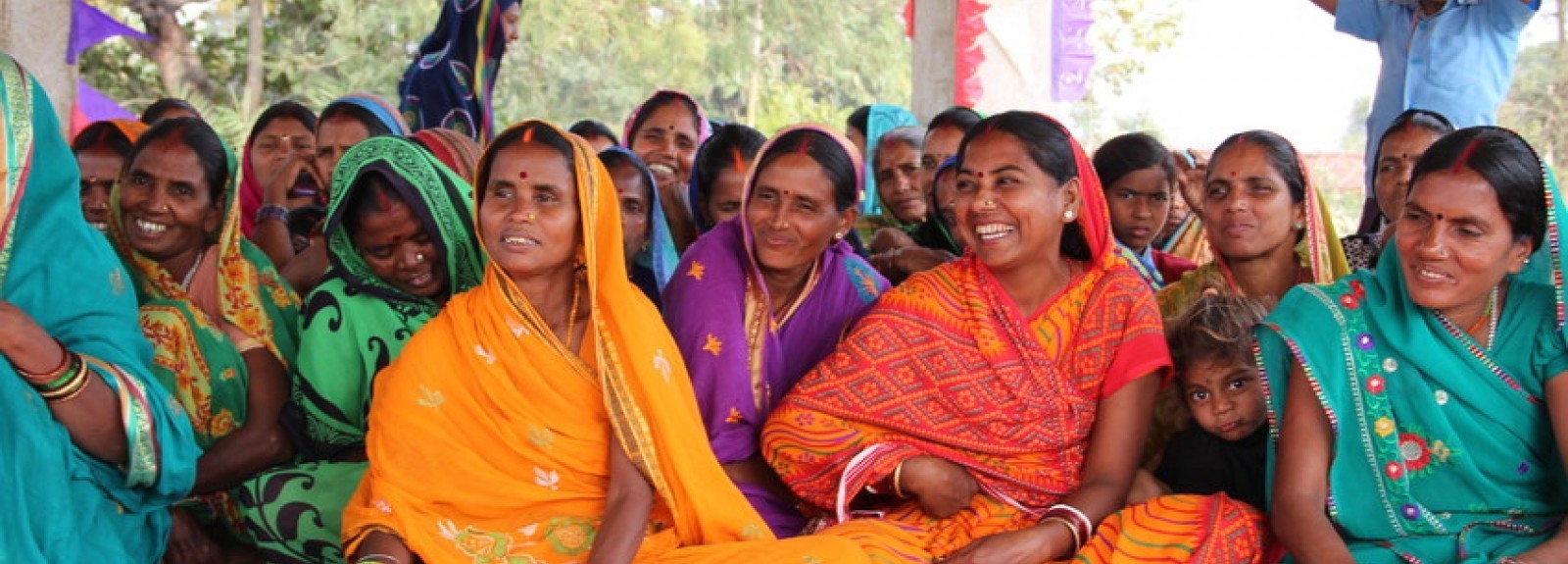Colors. Rich, vibrant colors as far as the eye could see.
During my recent trip to India, I was in wonder of the vibrant, rich colors that seemed to be everywhere and on everything – including the beautiful saris worn by the women gathered at the first ever Women Farmer’s Convention in Losinga, Bihar. More than 500 women from surrounding villages crossed Bihar’s arid plains on foot and motorbike to participate in this event, hosted by Lutheran World Relief and its local partner Action for Social Advancement (ASA) on January 7, 2016.
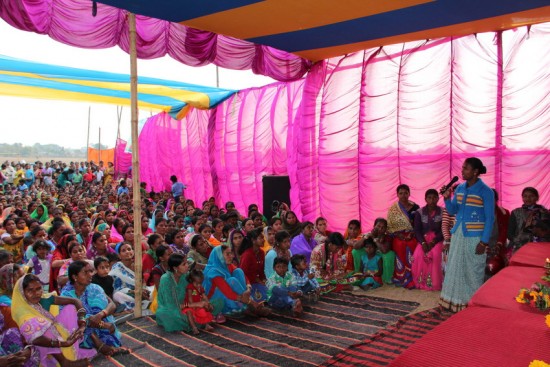
Women Teaching Women
Under the billowing rainbow tent, women and men performed songs and plays about equality, farmers’ rights, and the importance of working together. Most of these women had never spoken in front of men outside of their home before, let alone in front of hundreds of people. Their nerves were evident but so too was their sense of pride and perseverance.
Most agricultural work in Bihar (75%) is done by women. But for many of the women at the conference, this was the first time they were being recognized as farmers by their communities, local government officials, and agriculture professionals.
At crowded convention booths and in dusty field demonstrations, women farmers from an LWR-supported Self Help Group (SHG) spoke of how they’d learned to use heavy field machinery like power tillers, and about the improved farming practices they’ve learned, as groups of fellow women farmers – themselves members of SHGs in their own home villages – listened and learned.
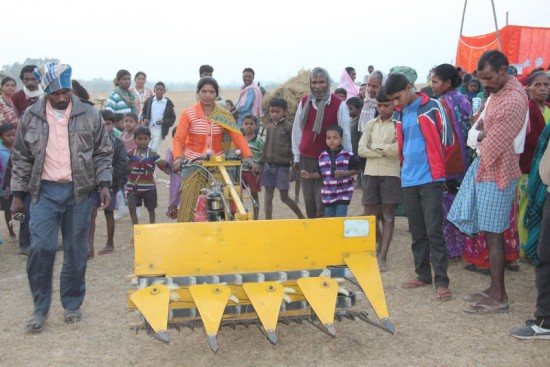
A Multiplying Effect
These SHGs are designed to empower women by helping them learn essential skills and building their capacity to improve their income and livelihoods. Topics typically covered within SHGs include accessing financial services, and speaking out in their homes, villages, and districts.
And the groups have had a multiplying effect, with women in groups going on to assist women in other villages to establish their own SHGs. Participation in the groups seems to be making a big difference. Many group members told me they are growing more crops, earning more money, and are experiencing better relationships with their husbands and families. I was also inspired by the amount of determination I heard in the women to go out and create even more positive change in their own and other communities.
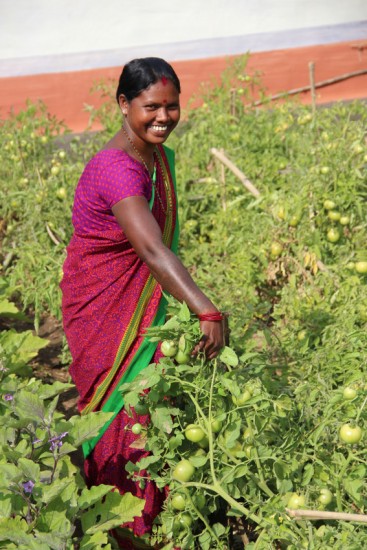
Building Roads
The indomitable women of Barmasia (pictured above) have such determination. Harnessing their unified strength as SHG members, these women are fighting to have their say not only inside their homes but with their local government as well. On their first trip (ever) outside of Barmasia, they paid a surprise visit to their District’s Head Office to demand several rights and services, which they had previously been denied, such as payment of government pensions owed to the elderly in their community.
Shocked by their outspokenness, the District Manager immediately tasked staff with visiting the women’s village to assess their situation and needs. The staff failed to reach Barmasia on their first attempt, however, because there was no road to the village. Within a few short weeks, the local government had built a road connecting Barmasia to the rest of the district. In their first attempt at civic participation, these women literally put their village on the map!
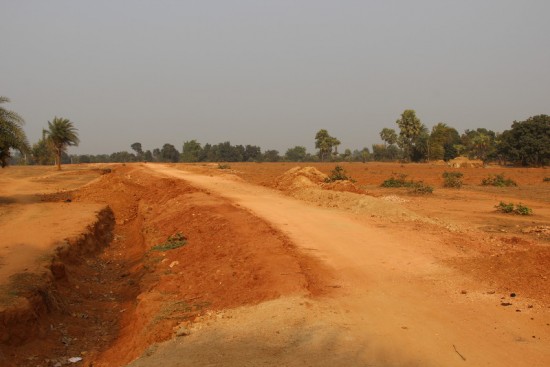
I am in awe of these women. They face adversity everywhere they turn, yet they never give up their fight- their fight to be heard, to be respected, to be treated equal. Many in power do not wish to hear or acknowledge them. Despite knowing this reality, these women continue to raise their voices and to transform their words into actions as SHGs to make life better, not only for themselves and their families but for their entire communities.
Your generous support makes this work possible. Thank you! I invite you to learn more about the work you are supporting India to build stronger rural communities, with women as valued partners in the process.


